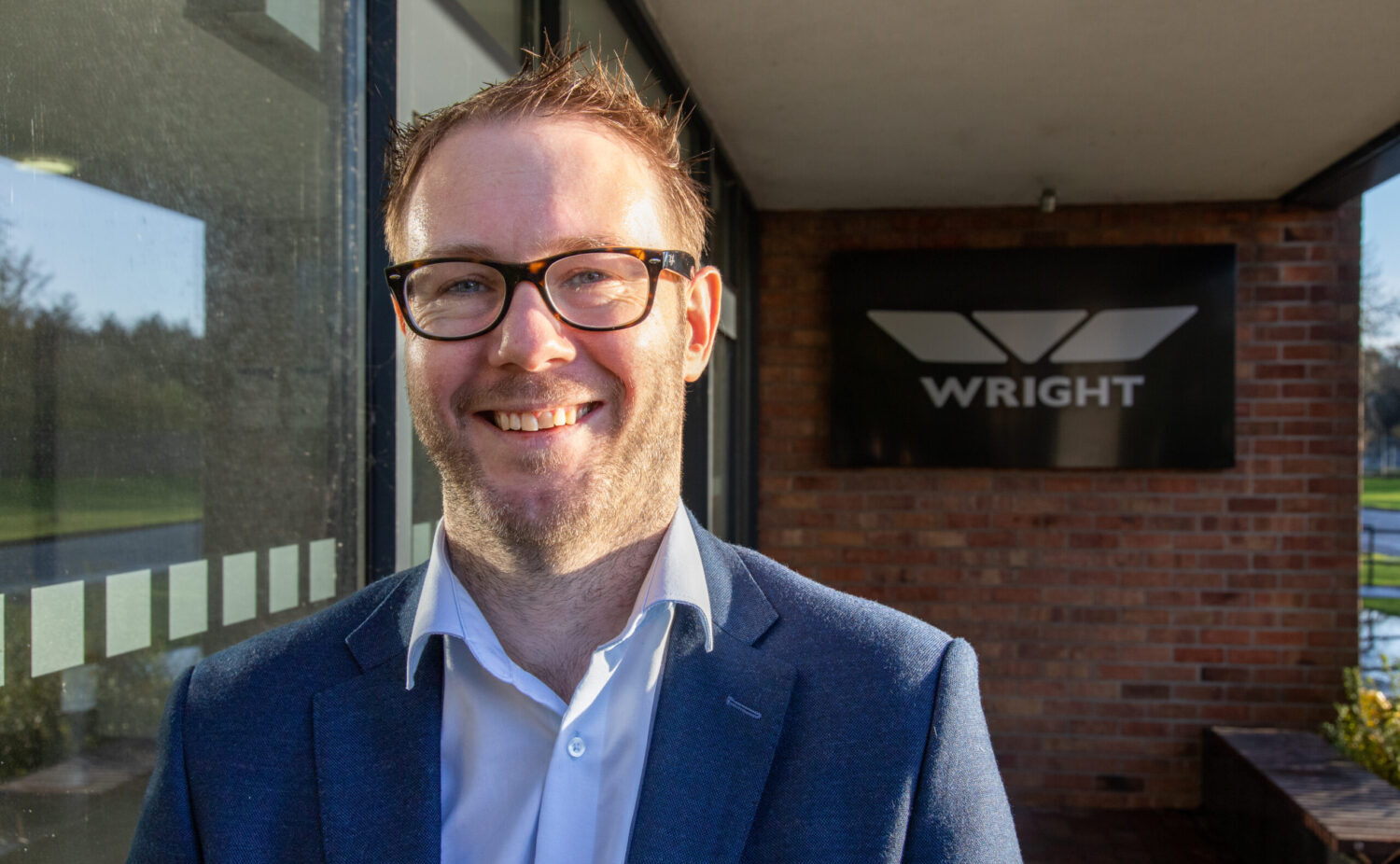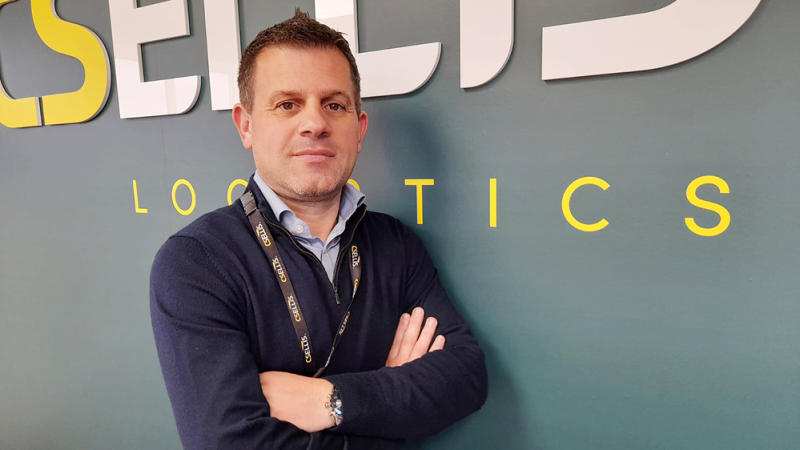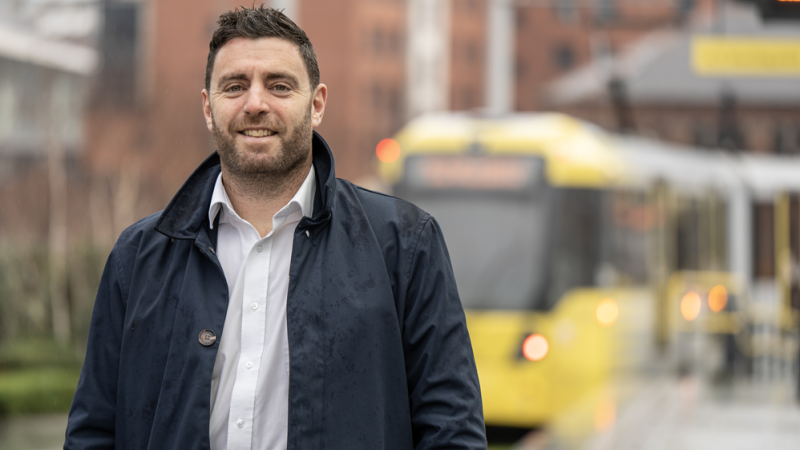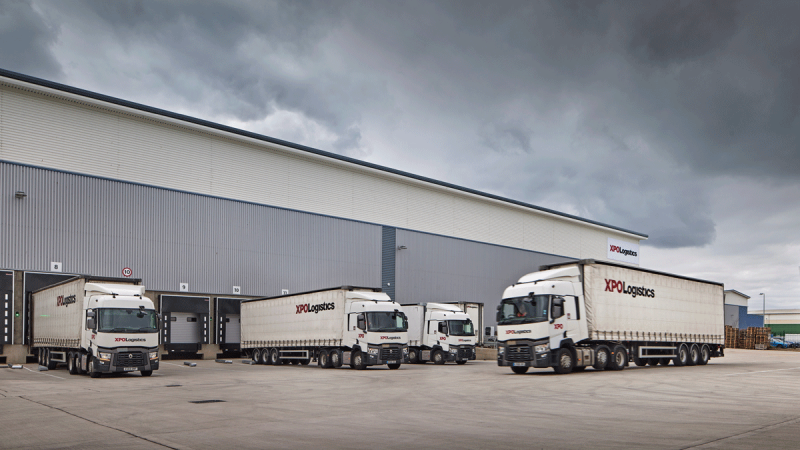Wrightbus is a Northern Ireland-based bus manufacturer and pioneer of the low-floor bus. The company was established in 1946 by Robert Wright and was later run by his son William Wright.
In 2019, British business and investor Jo Bamford, the heir to the JCB empire, rescued the company from administration and succeeded in transforming it into one of the world’s most prominent bus manufacturers, with a clear focus on new technologies.
Leading the way
In the transport industry Wrightbus has been leading the way on innovation since 1946. In the 1990s, a project was launched for ‘cleaner energy buses’ and in 2006 Wrightbus produced the first hydrogen bus, followed in 2020 by the first hydrogen double-decker bus, stepping into the new age of green mobility.
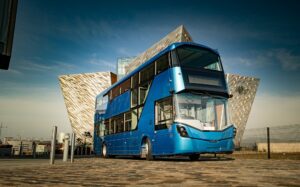 Focusing on lower-emission vehicles and on hydrogen in particular, the company today offers a full range of electric, hydro and diesel single- and double-decker buses. In 2022, zero-emission vehicles made up 70% of Wrightbus’s production output.
Focusing on lower-emission vehicles and on hydrogen in particular, the company today offers a full range of electric, hydro and diesel single- and double-decker buses. In 2022, zero-emission vehicles made up 70% of Wrightbus’s production output.
“What distinguishes us from others is that we’re the only bus manufacturer anywhere in the world that offers new energy technologies for its complete product range,” says Robert Best, Director of Engineering.
“Another competitive advantage is our unique skills set, which has allowed us over the last 20 years to develop a very powerful software tool to analyse customers’ use of our vehicles in terms of their technical as well as financial performance and finding the best solution for each application. This tool can be applied, again, across the full range of products.”
“The combination of this tool, the quality of our products and the fact that we can offer a complete range was one of the factors that allowed us to recover so strongly from being in administration in September 2019.”
Trend-setter
He points out that throughout the company’s 75-year history, Wrightbus has always been a technical innovator. “Technical innovation combined with the lowest cost – basically offering a better product than anybody else – has always been our USP, the result of listening very carefully to what our customers need or want.”
Interestingly, Wrightbus is apparently the only company in the world that has its own specialist bus research facility. Established in 2015 at Queen’s University in Belfast, the facility has 30 researchers working full-time on bus projects that include some of the modelling tools as well as well as zero-emission systems.
“The research facility is something we are very proud of. It survived the pandemic and continues to grow, sustaining our position as trendsetters. That extra R&D input coming from the academic side has been very significant for the business’s success and growth.”
This research is strongly supported by the new owner and investment in developing new technologies is considerable. Mr Best points out that over the last three years, the company has developed more new products that in the previous decade, with ‘zero emissions’ being the key theme.
Increasing demand
This focus has clearly brought tangible benefits. Announced just recently, Wrightbus has secured a major order worth £25.3 million to supply 117 zero-emission buses across England. Operated by First Bus, the buses will be rolled out across Yorkshire, Norfolk, Portsmouth, and Hampshire. Shortly after, First Bus ordered another 18 zero-emission buses for Leicester.
Recent news also included the announcement that Arriva London was proud to welcome 50 new zero-emission electric vehicles into operation this year.
The company is also reaping success abroad. Last year, Wrightbus won its first major deal in the EU since being bought out of administration: Cologne-based Regionalverkehr Köln GmbH (RVK) has ordered a fleet of up to 60 hydrogen-powered Kite Hydroliner single-decker buses over the next two years, potentially opening up a significant export market.
These new orders will support hundreds of new high-skills jobs and Mr Best admits that capacity expansion is in the pipeline. “At the moment, we are selling more buses than we can build, and ramping up production is one of our challenges, being in an area with unemployment close to zero. Still, we plan to increase staff numbers to around 1,500 from the current 1,100 by the end of the year.”
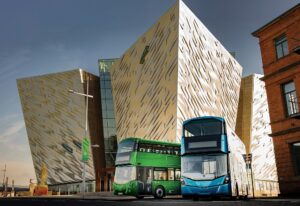 Green way forward
Green way forward
The zero-carbon focus is also being strongly pursued at the company’s Ballymena factory. The company has already a range of environmental and energy-saving measures in place but is venturing into a large project that should further support the hydrogen journey, says Mr Best.
Wrightbus has won funding from the Government’s Net Zero Hydrogen Fund (NZHF) to build, in partnership with sister company Hygen Energy, a multi-million-pound green hydrogen production facility at the Ballymena headquarters.
The project is set to initially produce enough clean energy to fuel 300 hydrogen-powered buses a day in Northern Ireland. “Decarbonising public transport requires a variety of solutions and for many bus routes, hydrogen is the best option. For this to happen, operators need a reliable, affordable, and constant supply. Our plans will enable future demand for hydrogen here in Northern Ireland to be met,” says Mr Best.
Looking ahead, he admits that the biggest challenge is the technology itself. Although most people agree that hydrogen is a way forward for buses, the technology is very expensive. “The major issue our customers face is the cost. There are not currently that many transport companies that can genuinely afford to transition to new-energy, zero-emission products without government assistance,” he reflects.
Still, the potential is huge, he affirms. “Wrightbus is currently leading the global market in terms of the volume of fuel-cell buses produced and is looking to expand its reach to new markets. We are set to grow, but to grow in a controlled manner. The aim is to produce around 1,200 – 1,400 buses next year. Our owner is very keen on increasing production to ensure that we’re a strong and robust business going forward.”

